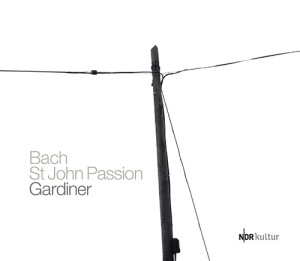 Rob Bell’s book has stirred up a lot of debate and I’ve been conducting a number of debates on facebook with my brother and my niece. You can find their blogs here and here. I feel totally inadequate to face the issues raised. How could a loving God condemn those who reject him to eternity in Hell? It’s a good question worthy of an answer that has been throught through and chewed on. How do we reconcile God’s wrath – showed most graphically this weekend of all weekends in the horrific death of his only Son Jesus on the cross – with his mercy?
Rob Bell’s book has stirred up a lot of debate and I’ve been conducting a number of debates on facebook with my brother and my niece. You can find their blogs here and here. I feel totally inadequate to face the issues raised. How could a loving God condemn those who reject him to eternity in Hell? It’s a good question worthy of an answer that has been throught through and chewed on. How do we reconcile God’s wrath – showed most graphically this weekend of all weekends in the horrific death of his only Son Jesus on the cross – with his mercy?
Well of course the answer is found in the cross too. I know the theory well. And in many ways I am very happy with the explanation of Jesus’ substitutionary atonement.
For our sake he made him to be sin who knew no sin, so that in him we might become the righteousness of God. (2 Corinthians 5:21 ESV)
But somehow seeing it all written on the page, in a book, or in the many excellent blogs on the subject, it all seems inadequate as an explanation. That’s partly my human-ness as I reduce God to my level. But perhaps there is something else too?
A quotation cited in a book about Bach’s sacred music I am currently reading really struck me:
The satisfaction theory of the atonement, when it was transposed from devotion to dogmatics, from meditation to systematic theology, created enormous problems: for the doctrine of God, for the portrait of the life of Jesus Christ, for the interpretation of the Bible. With the elimination of its full liturgical and sacramental context, it did not make sense – or, alternately, made entirely too much sense, transforming the mystery of the cross into the transaction of a celestial Shylock who demanded his pound of flesh. Bach’s St Matthew Passion rescued “satisfaction” from itself by restoring it to a liturgical context in which it could give voice to central and fundamental affirmations of the Christian Gospel[1]
I am not sure that I can go along with what Pelikan says here. Although no doubt there are those who would. But nevertheless the thought struck me forcibly that perhaps it is only in Worship that we can truly understand the fullness of the Atonement. Or to put it another way.
But when I thought how to understand this,
it seemed to me a wearisome task,
until I went into the sanctuary of God;
(Psalm 73:16-17 ESV)
Certainly I was greatly blessed today listening again to two wonderful arias from the St John Passion commenting on Jesus’ final words from the Cross as recorded in John’s Gospel – “It is finished!”
Es ist vollbracht!
It is accomplished !
What comfort for all suffering souls!
The night of sorrow
now reaches its final hours.
The hero from Judah triumphs in his might
and brings the strife to an end.
It is accomplished!
Mein teurer Heiland, laß dich fragen,
My beloved Saviour, let me ask you,
since you have now been nailed to the cross
and you yourself have said : It is accomplished,
have I been set free from death?
Through your pain and death can I
inherit the kingdom of heaven?
Is this the redemption of the whole world?
You can indeed not speak for anguish;
but you bow your head
and silently say : yes!
[1] Pelikan, Jaroslav, Bach Among the Theologians (Philadelphia: Fortress Press, 1979), 100-101
